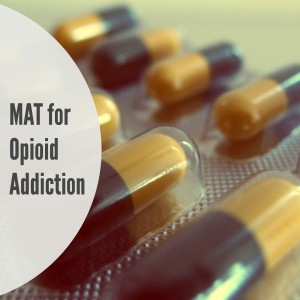 Medication assisted treatment (MAT) for opioid addiction has been endorsed by the American Medical Association, the American Academy of Addiction Psychiatry, and the American Society of Addiction Medicine. However, MAT is often misunderstood by those in search of effective recovery options.
Medication assisted treatment (MAT) for opioid addiction has been endorsed by the American Medical Association, the American Academy of Addiction Psychiatry, and the American Society of Addiction Medicine. However, MAT is often misunderstood by those in search of effective recovery options.
What Medications Are Used to Treat Opioid Addiction?
The most common medications used to treat opioid addiction are:
- Methadone
- Buprenorphine (sold under the brand names Suboxone and Subutex)
- Extended release naltrexone (sold under the brand name Vivitrol)
Both buprenorphine and methadone are classified as essential medicines by the World Health Organization. Methadone is given as an oral tablet, liquid, or wafer from licensed opioid treatment clinics only. Patients must visit the facility daily to receive treatment. Buprenorphine can be given as a tablet, a film placed under the tongue or against the inside cheek, or an implant inserted in the arm. Only specially credentialed doctors can prescribe buprenorphine.
Are There Any Side Effects?
Constipation and sweating are the most frequently reported side effects of treatment, followed by nausea, back pain, chills, weight gain, insomnia, and decreased libido. Side effects may decrease in severity as your body adjusts to the medication, but you should discuss any concerns about side effects with your healthcare provider.
The medications used to treat opioid addiction could interact with some prescription medications, such as SSRI antidepressants and those used to treat HIV. You will need to tell your healthcare provider about all of the medications you are currently taking to determine if medication assisted treatment is right for you.
Patients who suffer from liver disease require close monitoring white undergoing MAT.
Is MAT Safe for Pregnant Women?
MAT is considered safe for pregnant women, with much less risk to the unborn baby than continuing to abuse heroin or other opioids during pregnancy. Both methadone and buprenorphine will show up in a drug screen after a woman gives birth, but no action will be taken if your healthcare provider verifies that the medications are being used as part of your substance abuse treatment plan.
Since buprenorphine is a newer medication and has been the subject of less research, methadone is considered the standard choice for pregnant women. Buprenorphine is considered a Pregnancy Category C medication, which means the risk of adverse effects has not been ruled out.
After giving birth, women on low doses of methadone may be able to breastfeed. If you wish to breastfeed, this should be discussed with your healthcare provider.
How Long Does Medication Assisted Treatment Last?
The duration of MAT for opioid addiction is decided on a case-by-case basis. In most cases, the goal is to taper off the dosage slowly as you become more comfortable and confident in your sobriety. However, patients with a history of relapse can safely take their medication on a long-term basis if they are properly monitored.
There are three phases of MAT:
- Induction: A medically monitored beginning of MAT, which occurs when the patient is in the early stages of withdrawal.
- Stabilization: An adjustment of the dosage until the patient is reporting no cravings and experiencing few, if any, side effects.
- Maintenance: When the patient is doing well with a steady dose of medication, options for ongoing recovery are discussed. This can include either tapering off the medication altogether or continuing indefinitely to prevent relapse.
Isn’t MAT Simply Substituting One Addiction for Another?
People who’ve struggled with opioid addiction are often leery of medication assisted treatment because they believe that it’s best to get sober without any pills in their system. However, the medications used for treating opioid addiction do not result in getting high. The dosage is intended only to reduce cravings and withdrawal symptoms by balancing the brain circuits affected by addiction. This gives your brain time to heal as you work towards recovery.
Medication assisted treatment does not interfere with cognitive functioning. This means you can work, attend school, care for your children, and enjoy relationships with friends and family while receiving treatment.
Can Medications Cure Opioid Addiction?
Treatment for opioid addiction should combine medications with counseling to address the underlying issues contributing to substance abuse. Medications on their own are not a sufficient treatment for addiction, but using medication assisted treatment has been proven to improve retention rates in counseling programs.
Addiction is a chronic illness, so someone who suffers from opioid addiction will never be fully cured in the traditional sense. However, treatment can help an addict learn to manage cravings to live a full and productive life.
By Dana Hinders


